How To Get Rid Of Dandruff Naturally – 18 Tips And Remedies
Keep those pesky flakes and irritation at bay with natural and effective concoctions.
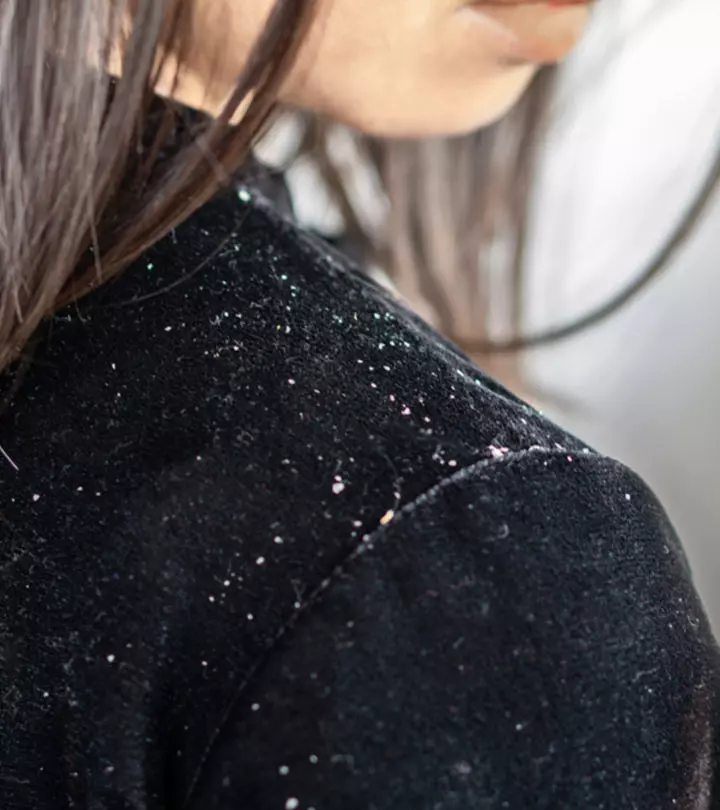
Image: Shutterstock
More than half the world’s population, i.e., over 3.6 billion people, are affected by dandruff (1). But dandruff can be controlled and treated in most cases. While it is annoying to deal with, we have simple tips about how to get rid of dandruff and itchy flaky scalps. Read on to know more about the prevention methods to keep your hair healthy and dandruff-free.
In This Article
What Causes Dandruff?
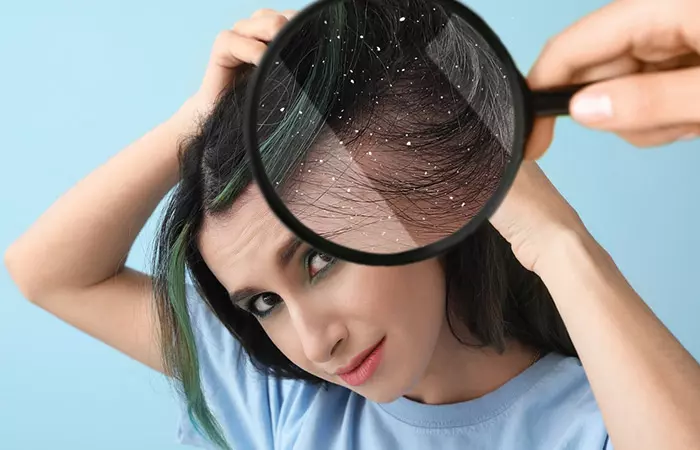
Dandruff is a common, chronic skin condition characterized by flaky scalp. The common causes of dandruff include:
- Seborrheic Dermatitis: Seborrheic dermatitis is characterized by skin inflammation redness of the skin, covered with flakes or scales (2). This condition usually affects areas rich in oil glands, such as the scalp, face, and upper chest.
- Malassezia: Malassezia is a yeast-like fungus that can cause infection and skin inflammation (3). This fungus feeds on the natural oils of your scalp and makes it dry and flaky, increasing the risk of dandruff.
- Dry Scalp: A dry and dehydrated scalp that lacks moisture leads to inflammation, irritation, and itchiness. This condition causes flakiness that eventually becomes dandruff (4).Typically, these flakes are smaller and less oily than those caused by other factors.
- Lifestyle Factors: Lifestyle factors such as stress, unbalanced diet, and insufficient sleep can also play a role in worsening dandruff. These factors are often overlooked but can contribute to the frequency and severity of dandruff. Stress, in particular, may trigger the body’s immune response, making the scalp more prone to issues like inflammation and flaking. Managing stress and eating a healthy, nutrient-rich diet can help improve scalp health and prevent dandruff.
An important thing to remember is that a dry scalp and dandruff are two distinct conditions. You may get dandruff due to dry skin or a fungal infection, but the dry flakes on your scalp may not always be due to dandruff. Dryness on the scalp can also occur without inflammation or itchiness, as in the case of dandruff.
Therefore, it is best to know the symptoms associated with dandruff. Keep reading to learn more about them.
Key Takeaways
- Dry scalp, fungal infection, or dermatitis is a common cause of dandruff.
- Regular hair washing, exfoliation, anti-dandruff shampoos, and a healthy and nutritious diet may help to get rid of dandruff.
- Tea tree oil, aloe vera, apple cider vinegar, and coconut oil are common home remedies that can treat dandruff.
What Are The Symptoms Of Dandruff?
The common symptoms associated with dandruff are:
- Itchy scalp
- Dry or greasy scales on the scalp
- Large yellow or white flakes on the scalp, hair, or eyebrows
- Raised bumps on the scalp (in severe cases of dandruff)
- Inflammation or redness on the scalp
The silver lining is you can control dandruff by following some measures. Scroll down to know what they are.
How To Get Rid Of Dandruff

- Wash Your Hair Regularly: The accumulation of excess oils, dirt, and dead skin cells on your scalp increases the risk of dandruff. Hence, you should wash your hair regularly to keep it clean and dandruff-free. However, do not use harsh shampoos that might dry out your scalp and worsen the condition.
- Switch To Anti-Dandruff Shampoos: Switching from a regular to anti-dandruff shampoo is the easiest option to treat dandruff. Anti-dandruff shampoos contain salicylic acid, ketoconazole, zinc pyrithione, and selenium sulfide that work against flakiness. You can follow it up by using an anti-dandruff conditioner to get smoother and softer hair.
- Change Your Diet: Apoor diet that lacks essential vitamins and minerals can lead to dandruff. A study shows that foods rich in fat and sugar result in more instances of dandruff than a fruit diet(5). Thus, maintain a balanced diet that includes essential nutrients, proteins, and minerals to keep the hair and scalp healthy.
- Exfoliate Your Scalp: Exfoliating your scalp can help remove dead skin cells and product buildup. Scalp exfoliators lock your scalp’s natural moisture, reduce dryness, and prevent the formation of flakes. You can also use a hot oil mask to balance the oil production of your scalp.
There are several commercial options that can help control dandruff. The products for treating flaky scalp fall under three categories.
- Antifungal Agents: These products help treat any fungal infection on your scalp or forehead that causes dandruff and flaky skin. Antifungal agents contain zinc pyrithione and selenium sulfide, which can eliminate fungal infection caused by Malassezia furfur (6).
- Flake-removing Agents: Agents like salicylic acid and sulfur exhibit keratolytic activityi A chemical process that dissolves the outer skin layer and increases skin moisture levels. through which corneocytes (clumps of flaky skin) are loosened and washed away (7).
- Anti-inflammatory Agents: Topical steroids available on prescription, such as corticosteroids (desonide hydrogel 0.05%), can have an anti-inflammatory effect on dandruff and help reduce flaky skin (8).
If you are looking for some effective home remedies for dandruff, check out the next section.
What Are The Best Home Remedies For Dandruff
1. Tea Tree Oil
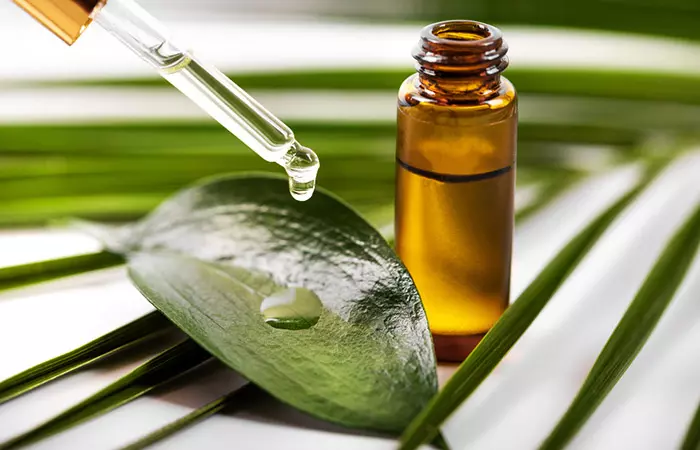
Tea tree oil possesses anti-inflammatory and antimicrobial properties, which help treat dandruff (9), (10). It also fights Malassezia, the dandruff-causing fungus (11).Tea tree oil can be used topically on your skin and scalp to mitigate any fungal infection that leads to flaky skin and dandruff.
You Will Need
- 2-3 drops of tea tree oil
- 2-3 drops of sweet almond or jojoba oils
Directions
- Mix the tea tree oil with sweet almond or jojoba oils.
- Soak a cotton pad with this oil blend and apply it to the scalp.
- Repeat this 3-4 times a week.
Note
: Tea tree oil can cause skin irritation in some people. Hence, do a patch test before using it. Discontinue if any allergic reaction occurs.
2. Coconut Oil
Coconut oil penetrates the hair shaft due to its low molecular weight and helps reduce protein loss (12). This can help nourish and condition your hair, hydrate your scalp, and prevent dryness, thus reducing the chances of dandruff.
You Will Need
- 2 tablespoons of coconut oil
Directions
- Massage the coconut oil onto your scalp.
- Leave it on for an hour and wash your hair with a mild shampoo.
- Repeat this twice a week.
Avia Sky, a blogger, shared how a concoction of coconut oil, castor oil, tea tree oil, and peppermint oil helped reduce her dandruff. She said, “Three treatments later and my dandruff was 95% gone. I was shocked! My head never felt cleaner or clearer. I ran my hand through my hair and waited for the snow flakes…but nothing.. like seriously nothing fell from my head (i)!”
3. Aloe Vera
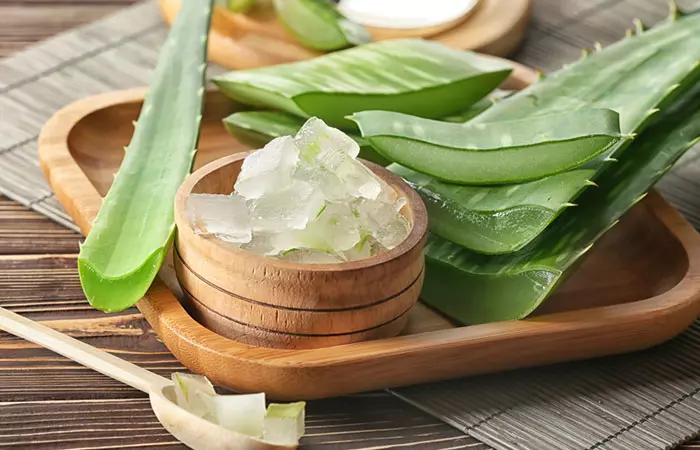
Studies show that the antimicrobial and antifungal properties of aloe vera inhibit the growth of Malassezia furfur (13)(14).
You Will Need
- Aloe vera gel
Directions
- Massage the aloe vera gel onto your scalp in circular motions until absorbed.
- Wash your hair after an hour.
- Repeat this twice a week.
4. Apple Cider Vinegar
Apple cider vinegar contains acetic acidi An acid formed as a byproduct of fermentation that gives vinegar a pungent taste. that helps balance your scalp’s pH level (15), (16). This, in turn, can prevent moisture loss and scalp dryness, which leads to dandruff.
You Will Need
- 1 tablespoon of raw apple cider vinegar (ACV)
- 3 tablespoons of water
Directions
- Mix the raw apple cider vinegar and water.
- Apply this solution to your scalp.
- Leave it on for a few minutes and shampoo your hair.
- Do this 1-2 times a week.
Note: Always dilute apple cider vinegar before using. Raw and undiluted ACV can cause burns and skin irritation.
5. Aspirin
Aspirin is a salicylate that helps loosen the white flakes on your scalp and eliminate scaliness (7).
You Will Need
- 2 aspirin tablets
Directions
- Crush the aspirin tablets to form a powder.
- Mix this aspirin powder with your regular shampoo.
- Shampoo your hair with this mixture and wait for two minutes before rinsing.
6. Probiotics
Probiotic foods, such as yogurt, contain Lactobacillus paracasei that can help restore the normal balance of your scalps microbiomei A community of good and harmful microorganisms that live on the skin. , thereby reducing dandruff (17). Thus, consume a cup of probiotic yogurt daily to prevent the formation of dandruff.
7. Baking Soda
Baking soda acts as a mild exfoliant that helps remove dead skin and excess oil from the scalp. Baking soda baths were found to reduce itchiness significantly(18). However, overuse of baking soda can strip your scalp’s natural oils and further aggravate dry scalp condition.
You Will Need
- 2-3 tablespoons of baking soda
Directions
- Apply the baking soda directly to wet hair.
- Leave it on for about 2 minutes and wash your hair thoroughly.
- Do this twice a week.
8. Onion Juice
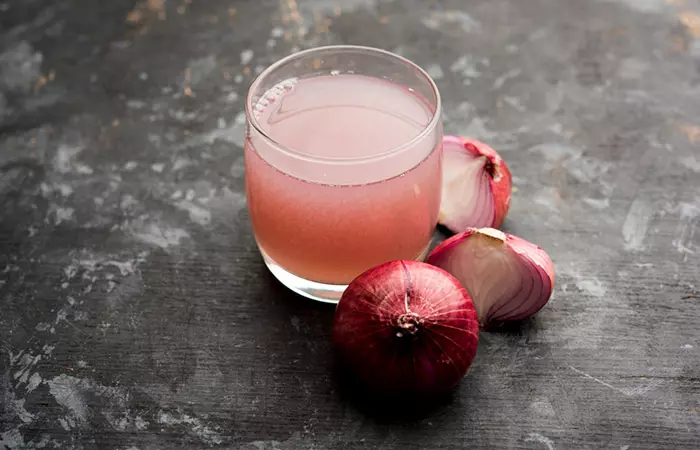
Studies show that onion extracts have antifungal properties, which inhibit the growth of Malassezia furfur (19).
You Will Need
- ½ of a whole onion
Directions
- Blend the onion and extract its juice.
- Strain the liquid and apply it generously to your scalp.
- Leave it on for an hour and wash your hair.
- Repeat this twice a week.
9. Lemongrass Oil
Lemongrass oil has antifungal properties that can help combat Malassezia furfur, a type of yeast that causes dandruff (20).
You Will Need
- 2-3 drops of lemongrass oil
Directions
- Add the lemongrass oil to your shampoo and
- Massage this mixture onto your scalp.
- Wash your hair thoroughly with plain water.
- Repeat this twice a week
Note
: If you have a sensitive scalp, topical application of lemongrass oil might cause an allergic reaction. Do a patch test before trying this remedy.
10. Eucalyptus Oil
A scalp with low levels of ceramidei A family of lipid molecules found in the skin cells to retain moisture and protect the skin. may be susceptible to dandruff (21). Anecdotal evidence suggests that eucalyptus oil can increase the ceramide content of your scalp, thereby reducing dandruff.
You Will Need
- 2-3 drops of eucalyptus oil
- 2-3 drops of coconut oil
Directions
- Mix the eucalyptus oil with coconut oil.
- Apply this oil blend to your scalp.
- Leave it on for 30-45 minutes and wash your hair thoroughly with plain water.
- Do this 2-3 times a week.
11. Garlic
Studies show that garlic has antifungal effects on Malassezia furfur, and its long-term intake can help alleviate dandruff (19),(22).
 Quick Tip
Quick TipYou Will Need
- A few cloves of garlic
- ½ cup of olive oil
Directions
- Peel and crush the garlic cloves.
- Add the crushed garlic to a saucepan with olive oil.
- Heat the mixture for 5 minutes.
- Strain and let it cool down.
- Apply it to your scalp and leave it on for 30-45 minutes before rinsing.
- Repeat this twice a week.
12. Neem Oil
are highly antifungal that can help treat dandruff (23). However, further research is required to prove the effects of neem extracts in this regard.
You Will Need
- 2-3 drops of neem oil
- 2-3 drops of coconut oil
What You Have To Do
- Mix the neem and coconut oils.
- Massage this oil blend onto your scalp.
- Leave it on for 30-45 minutes.
- Wash your hair thoroughly with plain water.
- Do this 2-3 times a week.
Note
: You can also boil a few neem leaves in water and use it to rinse your hair.
13. Lemon Juice
is a rich source of citric acid. And citric acid-based shampoos or agents can help keep the pH of your scalp balanced (24). This may, in turn, help reduce dandruff.
 Quick Tip
Quick TipYou Will Need
- 2-3 tablespoons of freshly extracted lemon juice
- Cotton ball
Directions
- Dab the cotton ball with the lemon juice and apply it to your scalp.
- Leave it on for about 5-10 minutes and wash your hair with a mild shampoo.
- Do this twice a week.
Note: Lemon juice might cause a stinging sensation.
14. Green Tea
Green tea hair tonic can treat various scalp and hair disorders like dandruff, itching, and hair loss (25). Research shows that green tea is rich in polyphenols and epigallocatechin gallate (EGCG) that prevent fungal infections (26).
You Will Need
- 2-3 green tea bags
- Warm water
Directions
- Soak the green tea bags in warm water and strain them after the liquid cools down.
- Rinse your hair with this decoction and wait for about 10 minutes.
- Wash your hair with a mild shampoo.
- Repeat this twice a week for a few months.
15. Fenugreek Seeds
A rabbit study found fenugreek leaf extract to bean effective and safe herbal remedy for fungal infections like dandruff (27). Fenugreek seed extracts display antifungal activity, which prevents dandruff formation (28).
You Will Need
- 1 tablespoon of fenugreek seeds
- 2 cups of hot water
Directions
- Crush the fenugreek seeds with a pestle.
- Soak the crushed seeds in hot water overnight.
- Strain this mixture and rinse your hair with the liquid in the morning.
Apart from these remedies, you may also try using hair masks for dandruff. These remedies may help reduce flaking, itching, and other symptoms of dandruff.
Infographic: 4 Effective Oils To Reduce Dandruff
Dandruff is an annoying scalp issue and often requires proper treatment. While you may use topical medicines to eliminate the dandruff-causing yeast, you can also try home remedies for fast and effective results. In the infographic below, we have listed a few most effective oils that can provide relief from dandruff and its symptoms. Check it out!

Illustration: StyleCraze Design Team
Dandruff is a common issue. However, you can treat it easily. You might try dandruff treatment at home instead of spending money on pricey products that may or may not get rid of dandruff. While dandruff can be a frustrating problem, several natural solutions can help alleviate the symptoms. Try a couple of natural solutions to maintain scalp health and naturally reduce dandruff the next time you notice flakes. A good hair care routine and a well-balanced diet, on the other hand, can help prevent it. Follow the natural remedies listed above. However, see your dermatologist and follow the prescribed treatment if the problem persists.
Frequently Asked Questions
Can dandruff lead to hair loss?
Dandruff itself doesn’t cause hair loss, but frequent scratching or irritation from it can lead to temporary hair shedding.
Can dandruff cause lice?
No, there is no link between dandruff and lice. They are both separate hair conditions that cause itching.
Is brushing good for dandruff?
Yes, regularly and gently brushing your hair helps evenly distribute your natural oil. It also cleans your scalp of dirt and dead skin.
Does dandruff spread through pillows?
No, dandruff is not a contagious condition that can be passed on from people or pillows.
Does dandruff itch more at night?
Yes, it is possible for dandruff to itch more at night. Low levels of histamine or the body’s inability to break down histamine may contribute to an itchy scalp at night. You can apply tea tree oil to your hair to alleviate itching.
Does egg remove dandruff?
Anecdotal evidence suggests that eggs may remove excess dirt and dead skin from the scalp. This makes it ideal for managing dandruff.
Does leaving hair wet make dandruff worse?
Yes, leaving your hair wet may increase the risk of developing a fungal infection or aggravating existing dandruff.
How can I cure dandruff permanently?
Eating a balanced diet provides you with lots of vitamins, zinc, and good fats that may help reduce dandruff by boosting hair and scalp health. Follow a good daily hair care routine too.
How can I get rid of dandruff fast?
Overnight hair masks using natural ingredients like tea tree oil, aloe vera, and neem may help reduce dandruff fast. You can pair these masks with clarifying gentle shampoos to avoid the recurrence of dandruff. Use anti-dandruff shampoos or ointments and creams recommended by your doctor for best results.
Not sure what is the reason behind your dandruff? Watch the video below to identify the exact cause and how you can get rid of this troublesome condition.
Personal Experience: Source
StyleCraze's articles are interwoven with authentic personal narratives that provide depth and resonance to our content. Below are the sources of the personal accounts referenced in this article.
i. How I Got Rid of My Dandruff in 2 Weeks By Accidenthttps://aviasky.medium.com/how-i-got-rid-of-my-dandruff-in-2-weeks-by-accident-e98010e482cb
References
Articles on StyleCraze are backed by verified information from peer-reviewed and academic research papers, reputed organizations, research institutions, and medical associations to ensure accuracy and relevance. Read our editorial policy to learn more.
- Seborrheic Dermatitis and Dandruff: A Comprehensive Review
https://www.ncbi.nlm.nih.gov/pmc/articles/PMC4852869/ - Adult Seborrheic Dermatitis
https://www.ncbi.nlm.nih.gov/pmc/articles/PMC3100109/ - Malassezia Can it be Ignored?
https://www.ncbi.nlm.nih.gov/pmc/articles/PMC4533528/ - A New Postulate on Two Stages of Dandruff: A Clinical Perspective
https://www.ncbi.nlm.nih.gov/pmc/articles/PMC3129121/ - Association between Diet and Seborrheic Dermatitis: A Cross-Sectional Study
https://www.sciencedirect.com/science/article/pii/S0022202X18324801 - Optimizing treatment approaches in seborrheic dermatitis
https://pubmed.ncbi.nlm.nih.gov/23441240/ - DANDRUFF: THE MOST COMMERCIALLY EXPLOITED SKIN DISEASE
https://www.ncbi.nlm.nih.gov/pmc/articles/PMC2887514/ - Treatment of scalp and facial seborrheic dermatitis with desonide hydrogel 0.05%
https://pubmed.ncbi.nlm.nih.gov/20967179/ - Treatment of dandruff with 5% tea tree oil shampoo
https://pubmed.ncbi.nlm.nih.gov/12451368/ - Melaleuca alternifolia (Tea Tree) oil: a review of antimicrobial and other medicinal properties
https://pubmed.ncbi.nlm.nih.gov/16418522/ - Role of antifungal agents in the treatment of seborrheic dermatitis
https://pubmed.ncbi.nlm.nih.gov/15663338/ - Effect of mineral oil, sunflower oil, and coconut oil on prevention of hair damage
https://pubmed.ncbi.nlm.nih.gov/12715094/ - Anti-Microbial Effect of Aloe vera Extract on Clotrimazole-Resistant Malassezia Furfur Strains Isolated From Patients with Seborrheic Dermatitis in the City of Sari
https://www.researchgate.net/publication/327833640_Anti-Microbial_Effect_of_Aloe_vera_Extract_on_Clotrimazole-Resistant_Malassezia_Furfur_Strains_Isolated_From_Patients_with_Seborrheic_Dermatitis_in_the_City_of_Sari - Characterization of Malassezia Furfurand its control by using plant extracts
https://journals.lww.com/ijd/pages/default.aspx - STUDY ABOUT THE NUTRITIONAL AND MEDICINAL PROPERTIES OF APPLE CIDER VINEGAR ARTICLE INFO ABSTRACT
https://www.researchgate.net/publication/322953260_STUDY_ABOUT_THE_NUTRITIONAL_AND_MEDICINAL_PROPERTIES_OF_APPLE_CIDER_VINEGAR_ARTICLE_INFO_ABSTRACT - Ethnopharmacological survey of home remedies used for treatment of hair and scalp and their methods of preparation in the West Bank-Palestine
https://www.ncbi.nlm.nih.gov/pmc/articles/PMC5499037/ - The positive benefit of Lactobacillus paracasei NCC2461 ST11 in healthy volunteers with moderate to severe dandruff
https://pubmed.ncbi.nlm.nih.gov/28789559/ - Old fashioned sodium bicarbonate baths for the treatment of psoriasis in the era of futuristic biologics: an old ally to be rescued
https://pubmed.ncbi.nlm.nih.gov/15897164/ - In vitro antifungal activities of Allium cepa, Allium sativum and ketoconazole against some pathogenic yeasts and dermatophytes
https://pubmed.ncbi.nlm.nih.gov/16690223/ - Inhibitory effect of formulated lemongrass shampoo on Malassezia furfur: a yeast associated with dandruff
https://pubmed.ncbi.nlm.nih.gov/21710859/ - The efficacy of a pseudo-ceramide and eucalyptus extract containing lotion on dry scalp skin
https://www.ncbi.nlm.nih.gov/pmc/articles/PMC5896640/ - Traditional vs Conventional Methods for theManagement of Dandruff
https://www.ijsr.net/archive/v6i11/ART20171061.pdf - ANTIFUNGAL PROPERTIES OF NEEM (AZARDIRACHTA INDICA) LEAVES EXTRACT TO TREAT HAIR DANDRUFF
https://www.researchgate.net/publication/333671637_ANTIFUNGAL_PROPERTIES_OF_NEEM_AZARDIRACHTA_INDICA_LEAVES_EXTRACT_TO_TREAT_HAIR_DANDRUFF - Shampoo and Conditioners: What a Dermatologist Should Know?
https://www.ncbi.nlm.nih.gov/pmc/articles/PMC4458934/ - Development and clinical evaluation of green tea hair tonic for greasy scalp treatment
https://www.researchgate.net/publication/308149951_Development_and_clinical_evaluation_of_green_tea_hair_tonic_for_greasy_scalp_treatment - Treatment of Atopic Dermatitis Associated with Malassezia sympodialisby Green Tea Extracts Bath Therapy: A Pilot Study
https://www.ncbi.nlm.nih.gov/pmc/articles/PMC3408302/ - Fenugreek Leaf Extract and Its Gel Formulation Show Activity Against Malassezia furfur
https://pubmed.ncbi.nlm.nih.gov/31524496/ - EFFECT OF GERMINATED SEEDS OF FENUGREEK ON Malasseizia furfur FROM HAIR DANDRUFF
https://www.journalcra.com/sites/default/files/issue-pdf/611.pdf
Read full bio of Dr. Jyoti Gupta
Read full bio of Arshiya Syeda
Read full bio of Ramona Sinha
Read full bio of Monomita Chakraborty





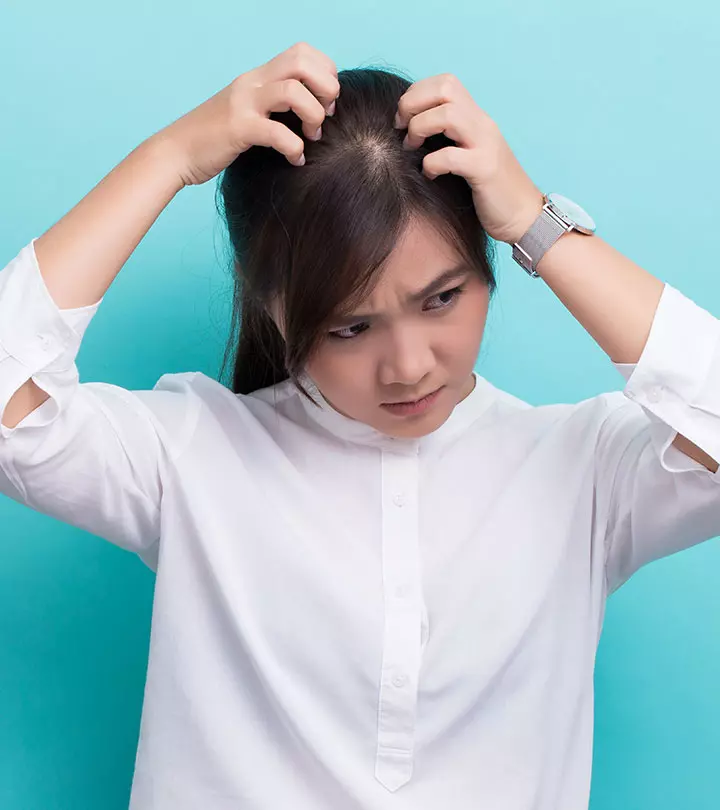
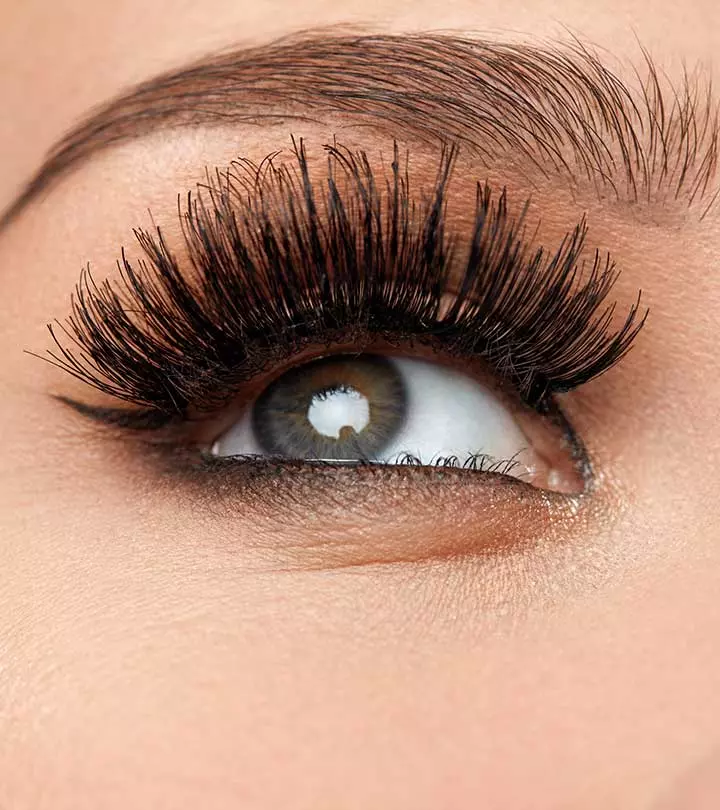
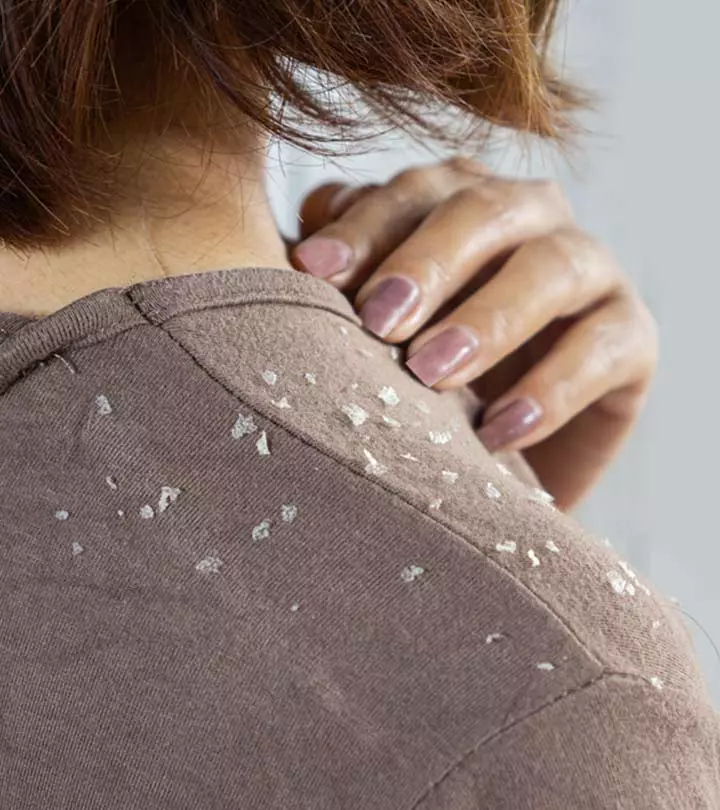
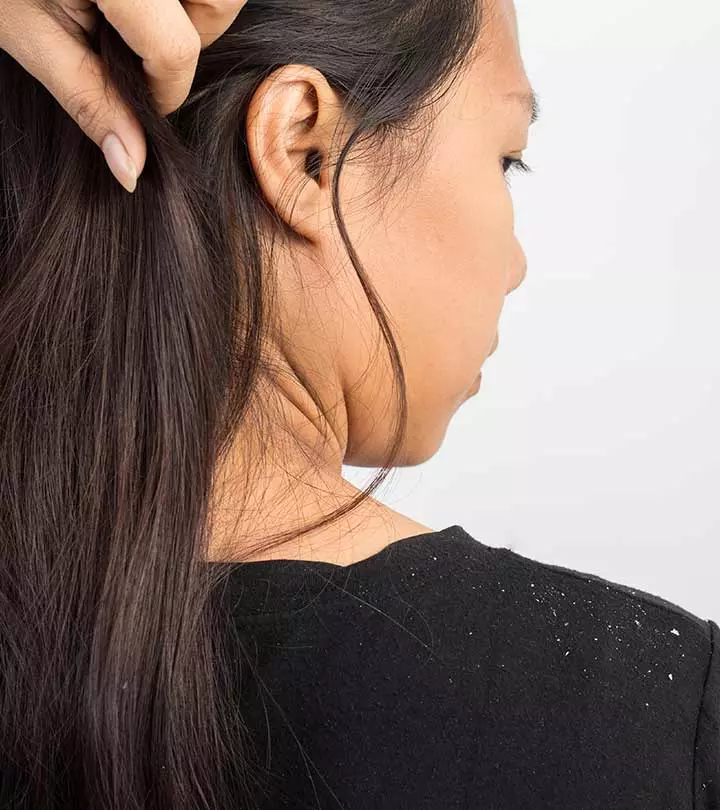
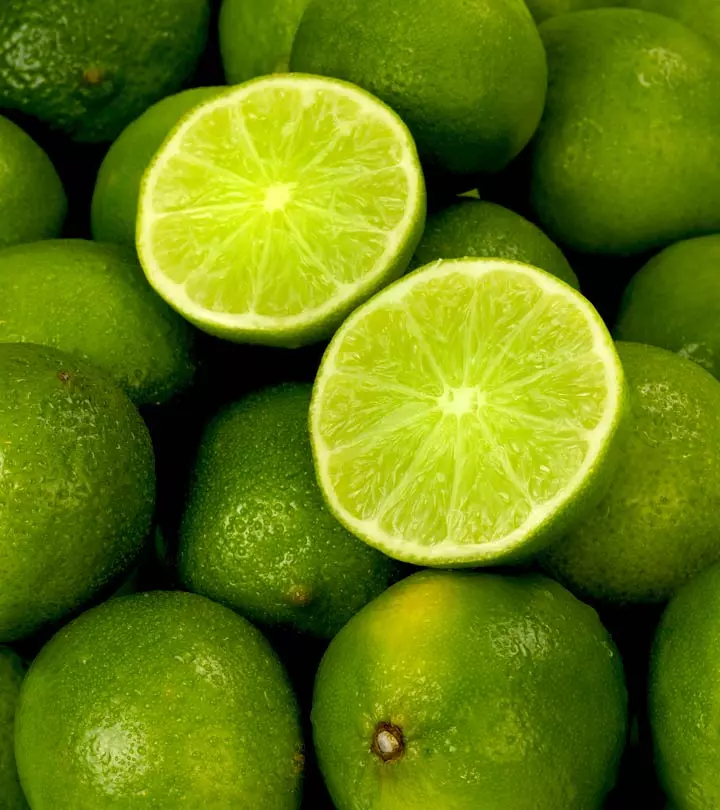
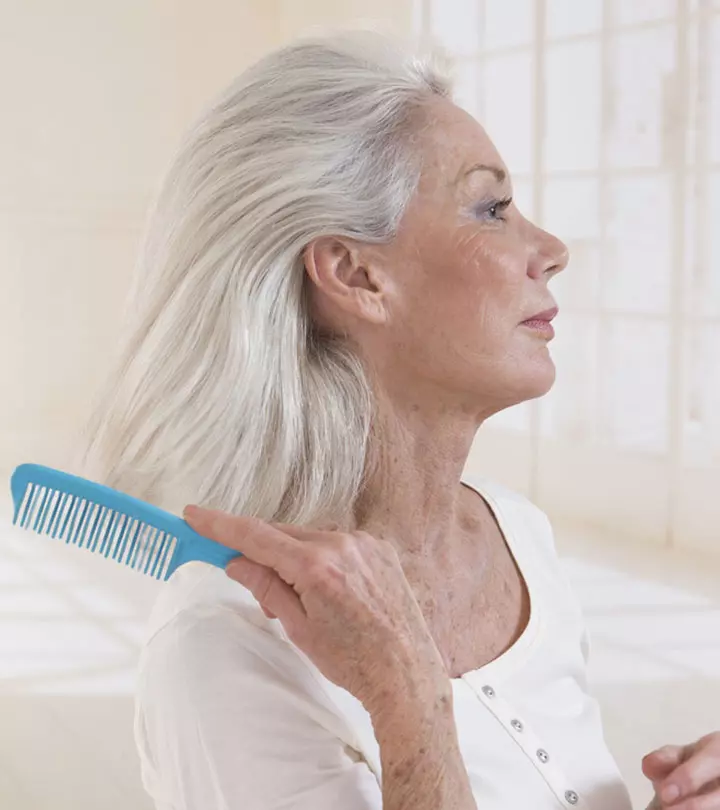
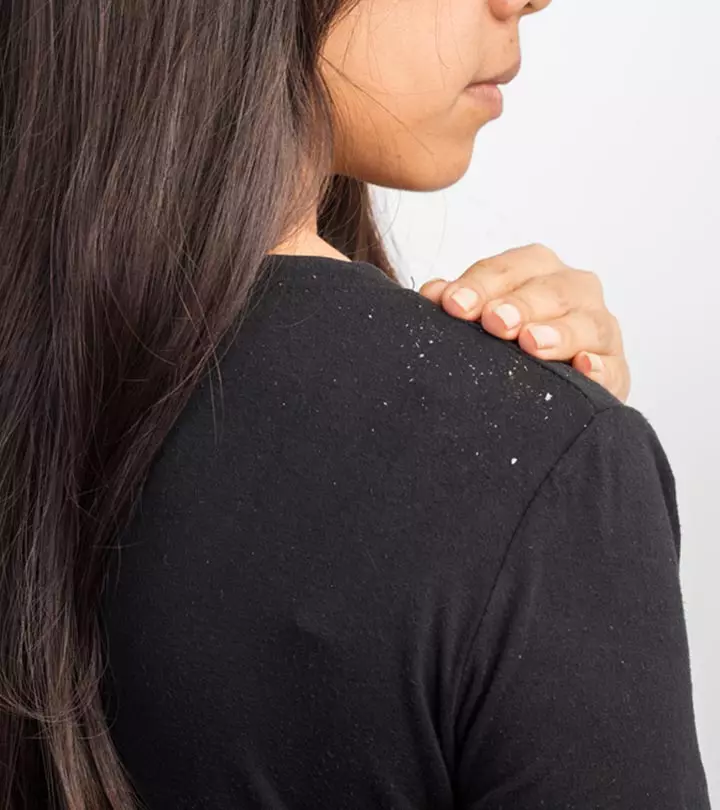
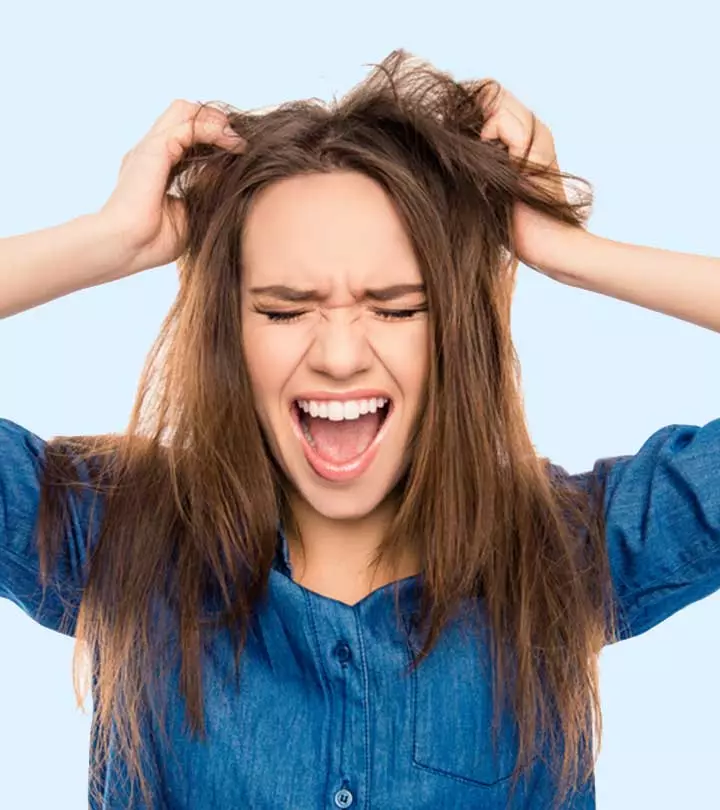
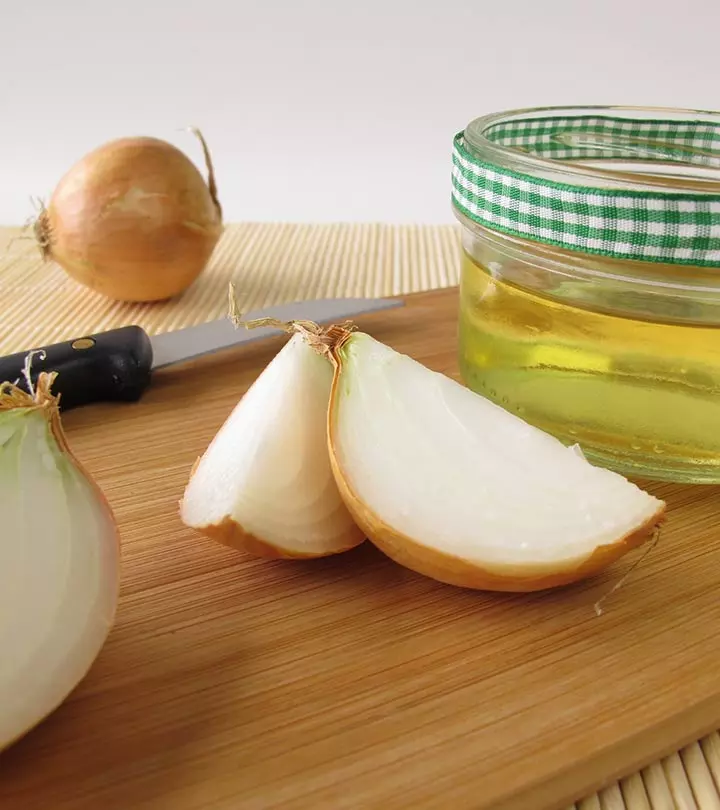
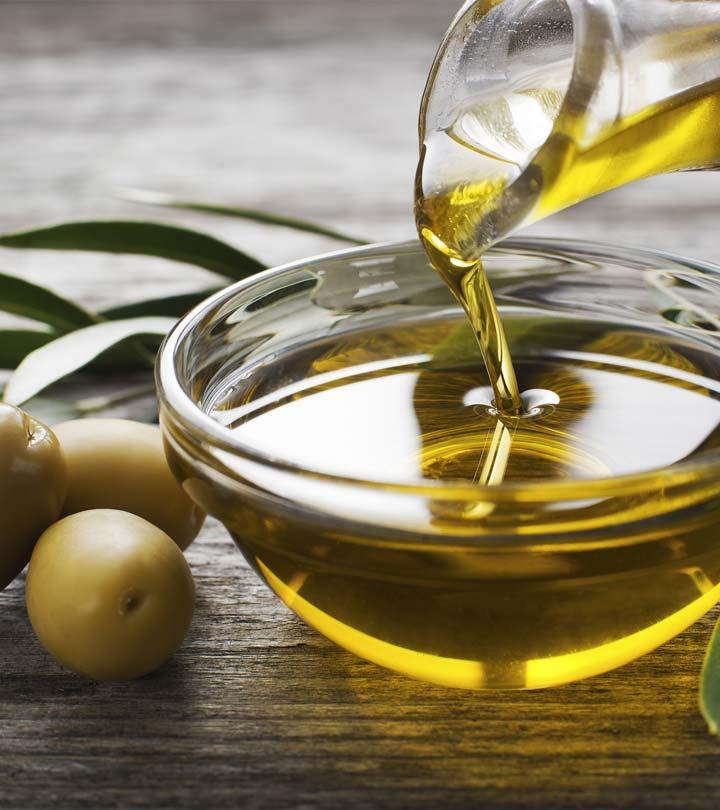
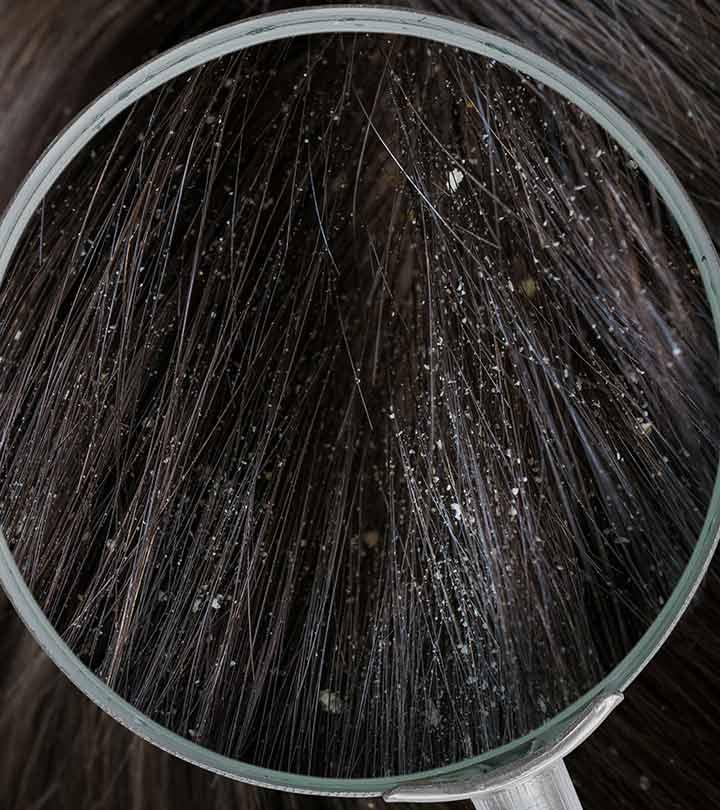
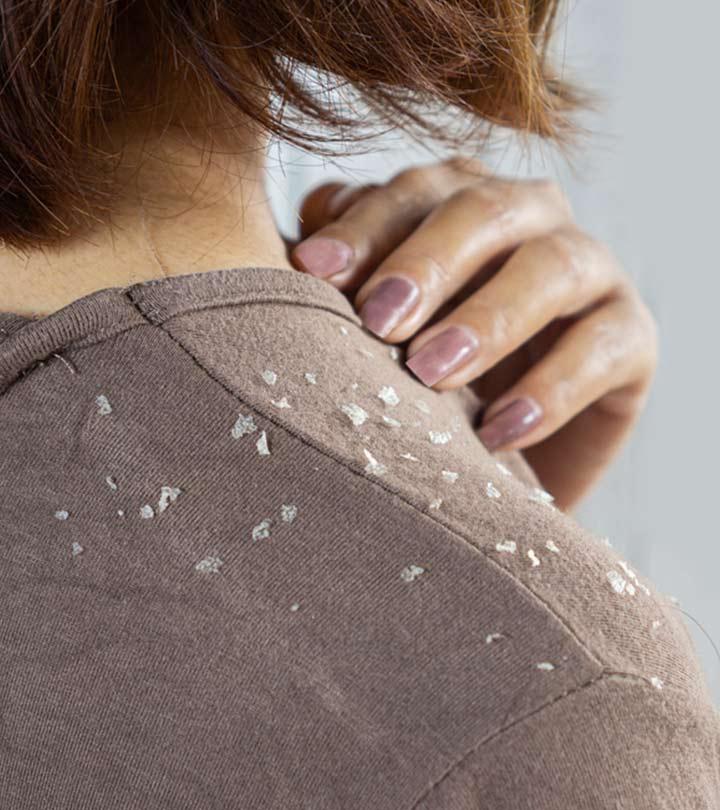
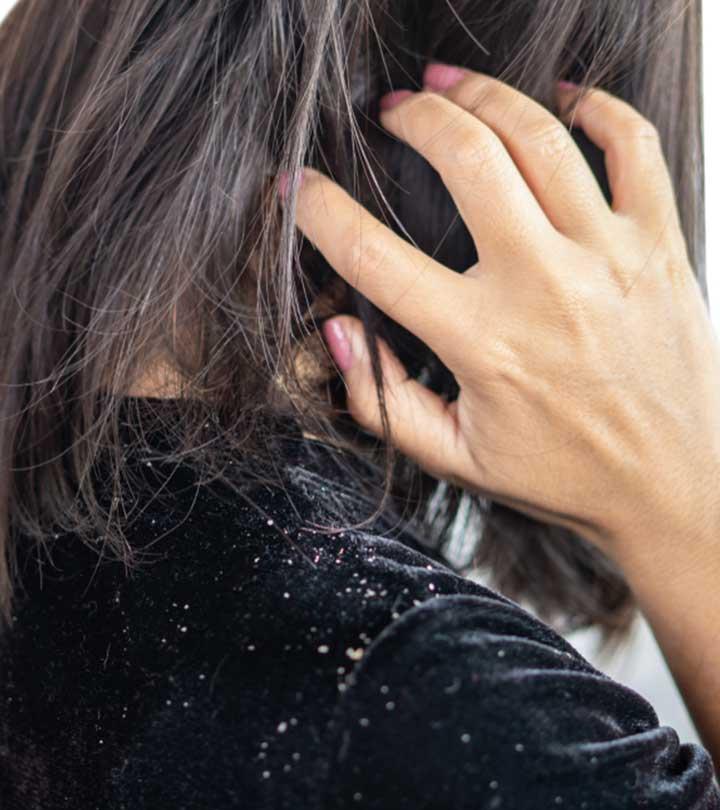
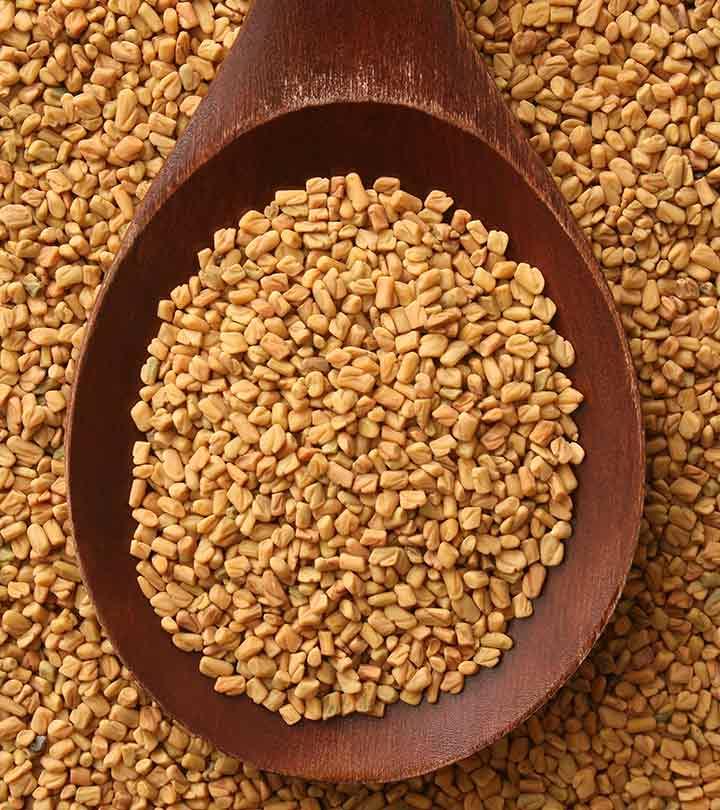

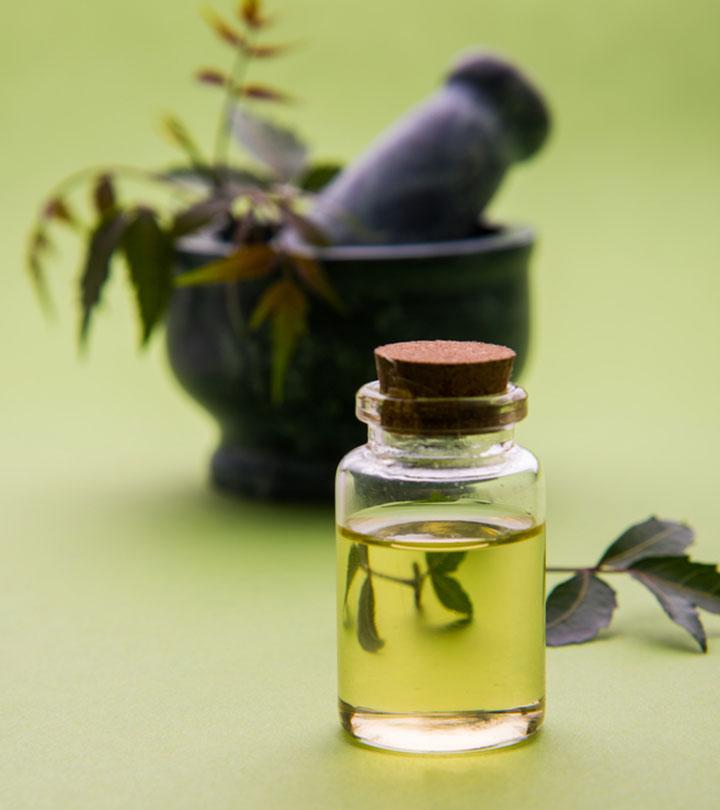
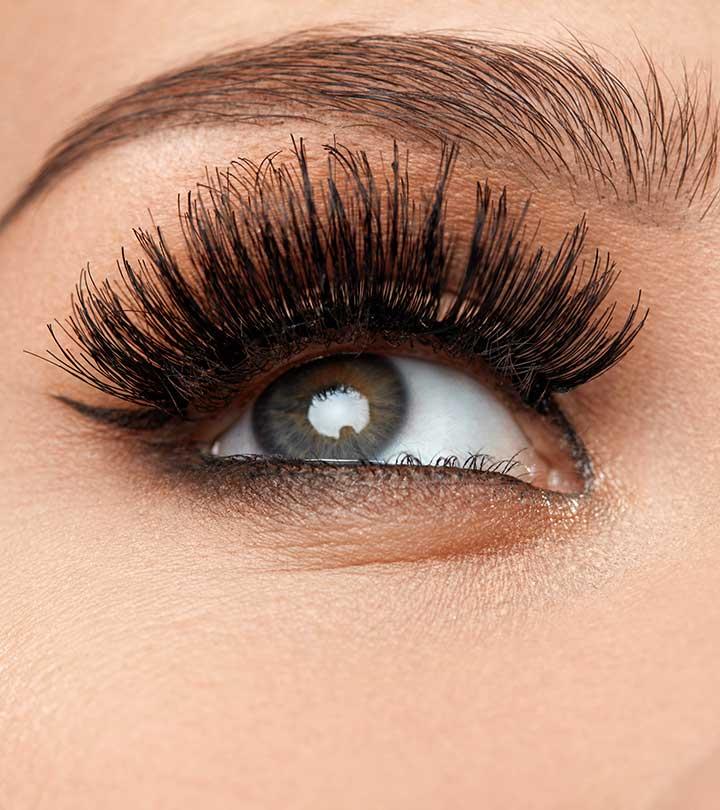
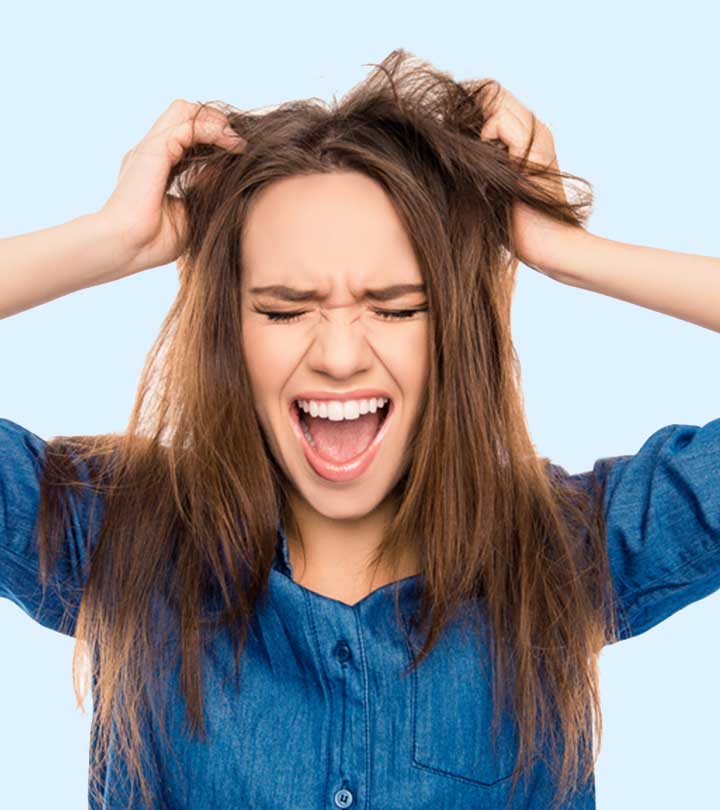
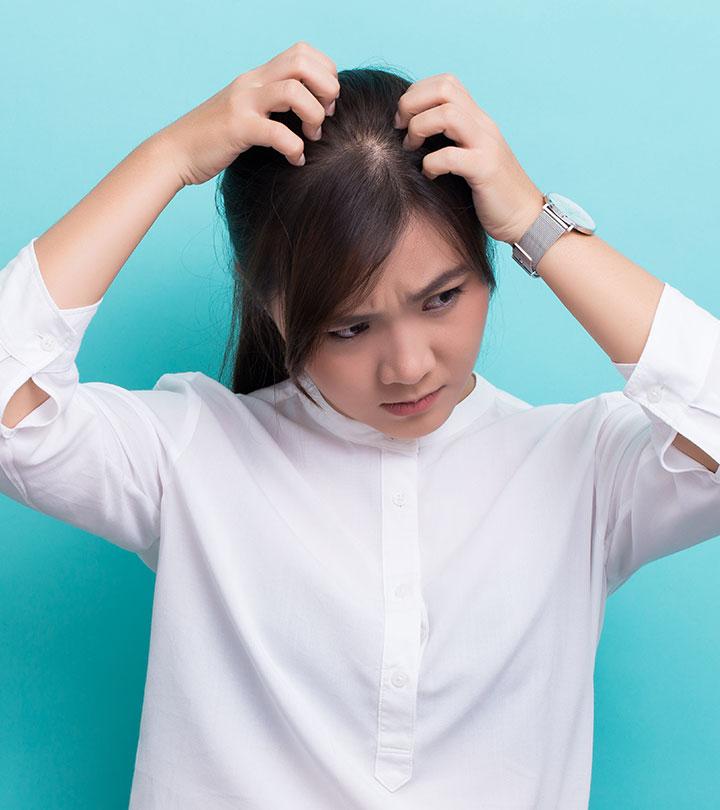
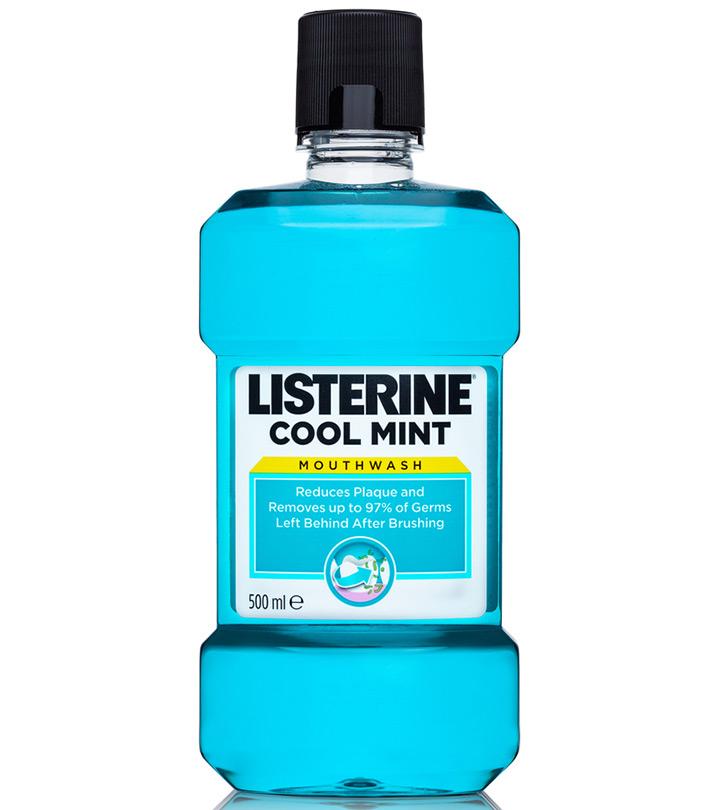
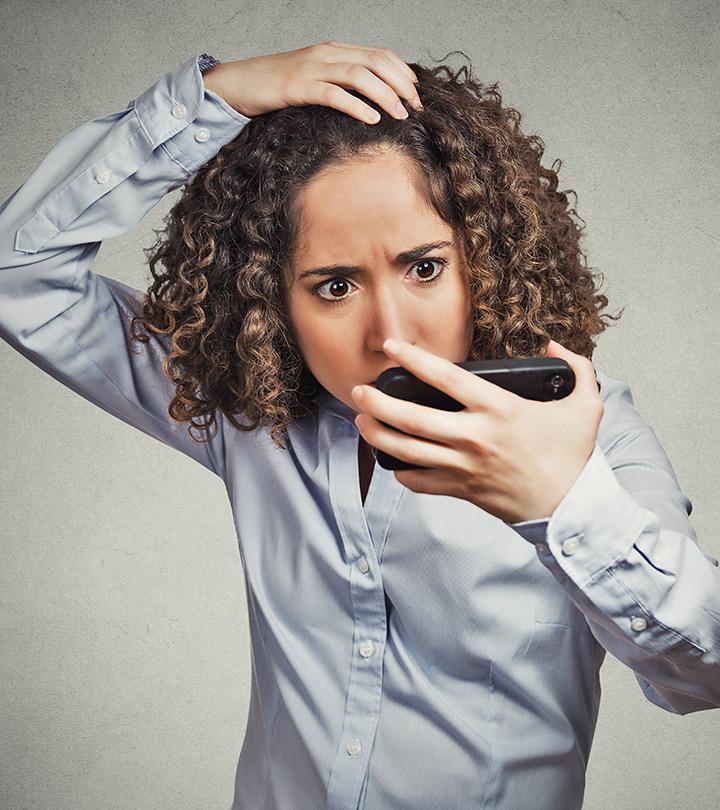
Community Experiences
Join the conversation and become a part of our empowering community! Share your stories, experiences, and insights to connect with other beauty, lifestyle, and health enthusiasts.